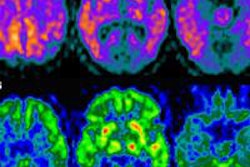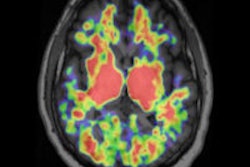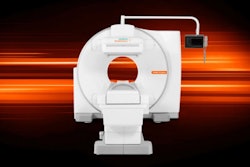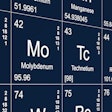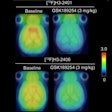PET scans using the Pittsburgh Compound B (PiB) radiopharmaceutical have shown a potential link between poor sleep and greater beta-amyloid accumulation, which could lead to Alzheimer's disease in older adults, according to a study published online October 21 in JAMA Neurology.
The association between poor sleep quality and duration and beta-amyloid buildup was evident after researchers excluded participants with mild cognitive impairment or dementia, and it was also seen in subgroups with high or low PiB levels.
"Our results may have significant public health implications," wrote lead author Adam Spira, PhD, from the department of mental health at Johns Hopkins Bloomberg School of Public Health, and colleagues.
Intervention to improve sleep or maintain healthy sleep among older adults may help prevent or slow the progression of Alzheimer's disease, enhance the quality of life of seniors and their families, and reduce related healthcare costs.
Sleep and impairment
Previous studies have found a link between poor sleep and cognitive impairment among older adults, the authors wrote. People with Alzheimer's are known to spend more time awake and to suffer from interrupted sleep more often than those without the disease.
The accumulation of beta-amyloid plaques in the brain has also been associated with Alzheimer's disease, and beta-amyloid levels may be regulated by sleep patterns, Spira and colleagues noted.
In the current study, they analyzed 70 adults from the neuroimaging substudy of the Baltimore Longitudinal Study of Aging. The mean age of the participants when they completed the PiB-PET scan was 78.2 years. The researchers also evaluated subjects' self-reported information on sleep duration and quality (JAMA Neurology, October 21, 2013).
Before undergoing PiB-PET imaging, the seniors were fitted with a thermoplastic face mask to decrease head motion. PiB-PET scans (Advance, GE Healthcare), which are used as a surrogate marker for amyloid pathology, were conducted in 3D mode immediately after a mean intravenous bolus injection of 540 MBq of PiB.
Beta-amyloid burden was measured by PiB-PET using distribution volume ratios (DVRs) for various regions of the brain, including the cortical and precuneus, which are associated with memory and are likely affected early in the course of Alzheimer's.
Of the 62 patients with sleep-duration data available, 26 (42%) reported getting six to seven hours of sleep per night, while 19 (31%) get more than seven hours. In addition, 13 individuals (21%) reported five to six hours of sleep, and four (7%) said they get no more than five hours of sleep.
PiB levels
Overall, 24 participants (34%) had elevated PiB levels based on cortical distribution volume ratio, and 16 (23%) had raised levels according to precuneus DVR, Spira and colleagues found.
After they adjusted for potential confounding factors, shorter sleep duration was associated with greater beta-amyloid burden, measured by the mean cortical DVR and precuneus DVR. Individuals with poorer sleep quality also had greater beta-amyloid accumulation as measured by precuneus DVR.
Spira and colleagues believe this study is the first published to document associations between self-reported sleep and beta-amyloid deposition as measured by PiB-PET in community-dwelling older adults.
However, because the study did not determine whether sleep disturbance preceded beta-amyloid deposition, the researchers could not say definitively whether poor sleep has a role in the development of Alzheimer's.
Still, they feel that the results could have positive implications for older adults with sleep issues and cognitive impairment.
"Because late-life sleep disturbance can be treated, interventions to improve sleep or maintain healthy sleep among older adults may help prevent or slow [Alzheimer's disease (AD)] to the extent that poor sleep promotes AD onset and progression," they wrote. "This result would have a substantial effect on the independence and quality of life of older adults and their families and on the significant healthcare costs associated with AD."






